Prompt 325. Earthlings and Broken Hearts
& a prompt on getting dumped by Suzy Hopkins and Hallie Bateman
Hi friend,
February is a loaded month for me. It’s full of memories, some cherished, some layered, some sorrowful. A cherished one was that Jon and I just celebrated our third wedding anniversary. A layered one is that this past week marked the third anniversary of my bone marrow transplant, often considered a rebirth worthy of celebration, now made complicated by another relapse. Then there are the sorrowful ones. Friday was Valentine’s Day, which is the anniversary of the death of my friend Anjali, whom I met in treatment when I was first diagnosed with leukemia at 22, whom I sat beside as she took her last breaths. Later this week will mark three years without Oscar, my beloved road pup and closest companion for a decade. I still miss him all the time. I am fully convinced that no little creature on earth will ever be as iconic as Oscar.
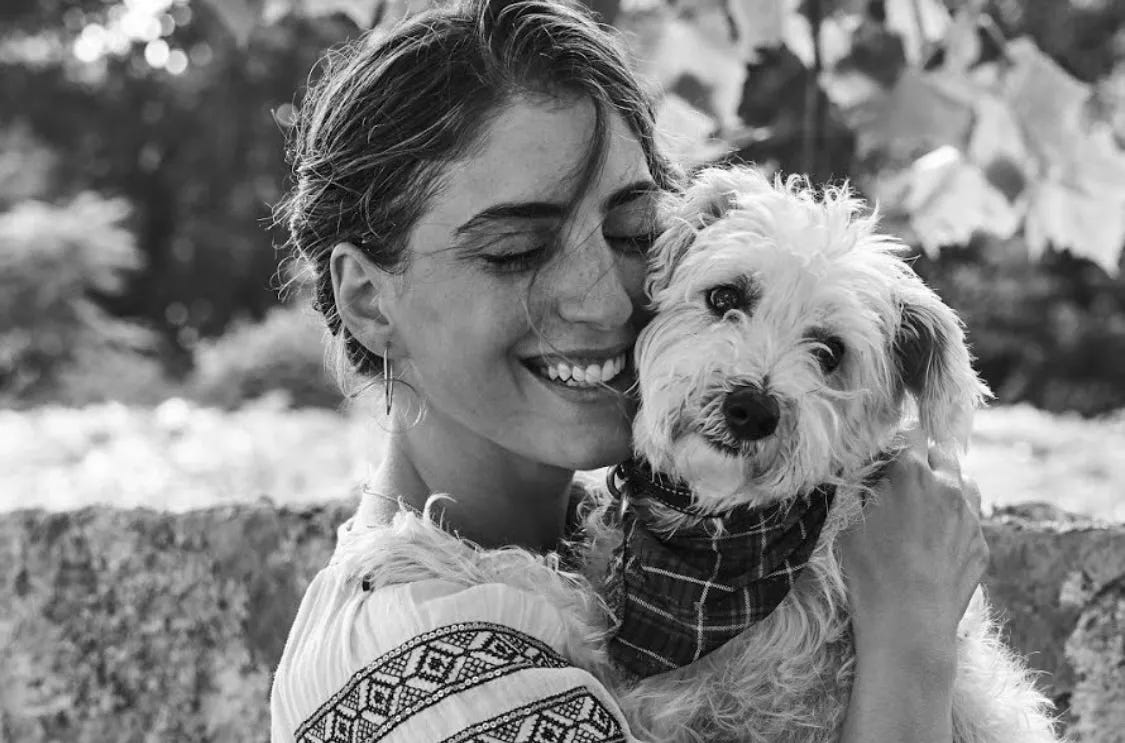
This layering of loves and losses and more loves has been a great teacher for me. It has taught me to accept the rhythm of our lives, which is all loves and all losses, all of the time. It has taught me to be proud of the intensity of my heartbreaks, because what is grief but a measure of love? The more deeply you love, the more deeply you grieve. I have come to believe our capacity for love is infinite, and like love, I believe our capacity for grief is infinite, if we accept it for what it is—as part of the rhythm of life.
This wasn’t always the case. In my twenties, I went through a break-up that was so heart-wrenching that I wondered if I would survive. I thought, I never want to go through that again. Maybe it’s time to take a vow of celibacy. Where’s the nearest convent? And for some time, I put up walls to guard myself against new love as a way to safeguard against loss. But now, a decade later, I think of grief not as something to be avoided, but as an indicator of what inspired me to feel deeply, what arrested me, what made me feel loving and loved and alive. Instead of telling myself a story about the unfairness of the universe or how the stars are conspiring against me, it’s information about what I want more of in my life, what I should double down on—which for me is beauty, joy, and always, more love.
This perspective has been transformative for how I’ve experienced my latest leukemia recurrence. I haven’t had that sense of shock or the tumultuous period of processing and adjusting as with those first two diagnoses. I’m not asking myself “Why me?” like I did when I learned I was sick at age 22. Back then, I was desperate to find a reason or a cause for my illness, and I was so angry at the unfairness of it and at what my life had become. I felt a deep sense of betrayal and so much fear—of pain, of loss, of death. But at this point, I don’t want to be attached to my suffering in that way. It has consumed enough of my life. I attend to my illness as I need to, but I want to live my life.
That’s not to say I’m some saint, full of serenity and light all day every day. I get bad news all the time, and when I do, I flash with the same rage against my circumstances that any other human would. It’s just that I’m now able to notice the impulse to feel sad and mad and sorry for myself. In those moments, I extend myself a little grace. I tell myself, “You can indulge this for as long as you need to, but you can’t let it subsume you.”
What I’m speaking of, I guess, is a kind of psychological distance from suffering, like the feeling of being on an airplane and looking out the window and having your perspective righted. When I was flying to New Orleans for the Super Bowl last week, I had one of those dizzying moments where I looked down at the clouds and the quilted patchwork of cityscapes opening onto farmland and thought, I’m a mere earthling among eight billion earthlings. That humbling felt good and necessary. It’s something I’ve felt, too, when walking around New York City, when I look up at skyscrapers with windows illuminated, knowing that behind each of these windows is a human being grappling with their own shit, their own stories that feel all-consuming to the point that they should be front-page news. The gift, if we want to call it that, of my illness is that it has right-sized the importance of the stories we tell ourselves about our suffering. And it has taught me again and again the wisdom of my friend Katherine’s words: “Love the people around you. Love the life you have. I can’t think of a more powerful response to life’s sorrows than loving.”
With heartbreak, it’s not a question of if, but when. What do you do then? Do you build a moat around yourself and pull up the drawbridge? Or do you fill your life with as many of the people, places, and things you love as you can?
Heartbreak is a tale as old as time, one that the journalist Suzy Hopkins and her daughter, the illustrator Hallie Bateman, retell in word and image in today’s guest essay, “A Break-Up in Five Acts.” It’s excerpted from their wise, funny, and poignant new book, What to Do When You Get Dumped, where Suzy recounts the experience of losing her marriage and finding herself. May it give you new perspective on what you’ve loved, what you’ve lost, and where you want to double down.
Sending a double dose of love,
Suleika
Mark your calendar!
We’ve scheduled our next meeting of the Hatch, our monthly creative gathering for paid subscribers for Sunday, February 23 from 1-2 pm ET. Holly Huitt will be hosting this time—she’ll open with a short lecture, then you’ll spend the rest of the time reflecting and creating together. The experience is so powerful, generative, and connected. I hope you’ll join us!
Prompt 325. A Break-up in Five Parts by Suzy Hopkins & Hallie Bateman
I. Panic
Countdown 1,582 Days. I could tell you not to, but let’s face it: You’re probably going to panic. Every cell in your body may want to scream. True, there are stoic types for whom this dumping may constitute a little setback, worthy of a quiet tear or two amid moments of somber reflection.
But if you’re like me, you will sweat profusely, double over, shriek, cry, vomit, all while thinking that this is the end of the world. It is not—but it feels like it. During this panic phase, stop screaming periodically to practice patches of slow breathing, and slow counting.
When you fall to the floor, stay in the fetal position for as long as needed. Then roll over onto your back and slowly count ceiling tiles or cobwebs or actual spiders. Do it out loud, to hear the sound of a human voice that’s not leaving you. Let the floor gently hold you until your legs are up to the task.
II. Distract Yourself
Countdown: 1,420 days. Staying busy will help pass the time until the pain eases. Speaking from experience, some diversions are better than others.
III. Brace Yourself
Countdown: 1,370 days
IV. Forgive or Forget
Countdown: 202 days. Do you need to forgive X to move ahead?
Everything I read indicated yes, noting that forgiving X doesn’t mean you agree with their actions—simply that you acknowledge what happened and “let go of anger.” Much of it was peppered with the implication that a really good person would, of course, readily forgive.
This felt like yet another demand on top of the rest: leave my longtime home, rebuild my trap-door life, reimagine my future, grieve alone.
What mattered most, I decided, was strengthening my own ability to move forward—working to release my attachment to someone with whom a reciprocal relationship was not possible. Perhaps forgiveness, like grief, keeps its own schedule. In the interim, forgetting has its own allure.
V. The Turning Point
Countdown: 0 Days. For me, the turning point came during an early morning walk.
Against an early spring sky, I looked up to see six Canada geese flapping close overhead in a 5-1 formation, honking wildly. In the lone bird I saw myself, flying alongside memories of our former family of five.
Moments later, three more geese flew even closer in a perfect V, beauty and purpose in motion. My three children, I was reminded, were the beautiful result of those years.
I chose that moment, more than four years in the making, to unbreak my heart.
You have choices too.
This life is yours alone, rare and singular, the responsibility of no one else. What you do with it next will be bolstered by the knowledge and understanding you have gained, along with new compassion for yourself.
Your prompt for the week:
Write about a break-up. About the ways it upended your life. About how you coped (well or poorly). About when and how you reached the turning point where your heart began to mend. About the ways you learned to take responsibility for your life. About the knowledge, understanding, and compassion you developed in the wake of it.
If you’d like, you can post your response to today’s prompt in the comments section, in our Facebook group, or on Instagram by tagging @theisolationjournals. As a reminder, we love seeing your work inspired by the Isolation Journals, but to preserve this as a community space, we request no promotion of outside projects.
Today’s Contributors—
Suzy Hopkins is a former newspaper reporter and magazine publisher. She is coauthor of What to Do When I’m Gone with her daughter, Hallie Bateman. Hallie Bateman is a writer and illustrator whose work has appeared in The New Yorker, The New York Times Magazine, The Awl, and many others. Her books include Directions, What to Do When I’m Gone, and Brave New Work. Other books she has illustrated include Eggasaurus. Both Suzy and Hallie live in Cincinnati, Ohio.
For more paid subscriber benefits, see—
Letters from Love, a video replay of my workshop with the dazzling Elizabeth Gilbert, where she shares the transformative spiritual practice she uses to combat self-criticism and to access an ocean of unconditional love
On Truth-Telling, a video replay of Studio Visit with the brilliant Stephanie Danler, where we talked about character development in fiction and nonfiction, using notebooks and notecards as a creative tool, and the challenges of writing about ex-loves
Haunted by Heartbreak, an installment of my advice column Dear Susu, where I answered that forever question: “How do I break free from lost love?”
Pre-order The Book of Alchemy—
My new book, The Book of Alchemy, comes out in just a couple months—on April 22, 2025! I’d be so grateful if you would preorder a copy for yourself or a friend. Preorders are so important for authors, and it would mean everything to me.
And for anyone who pre-orders, there’s an extra special workshop I’ll be hosting on April 21, 2025, at 7pm ET. To reserve a spot, pre-order your copy then register at the link below!

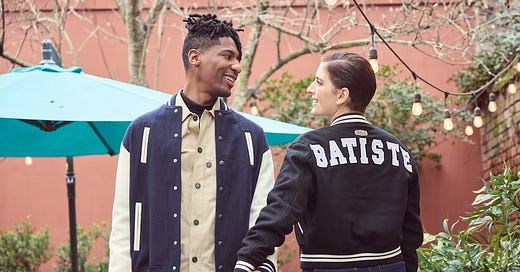








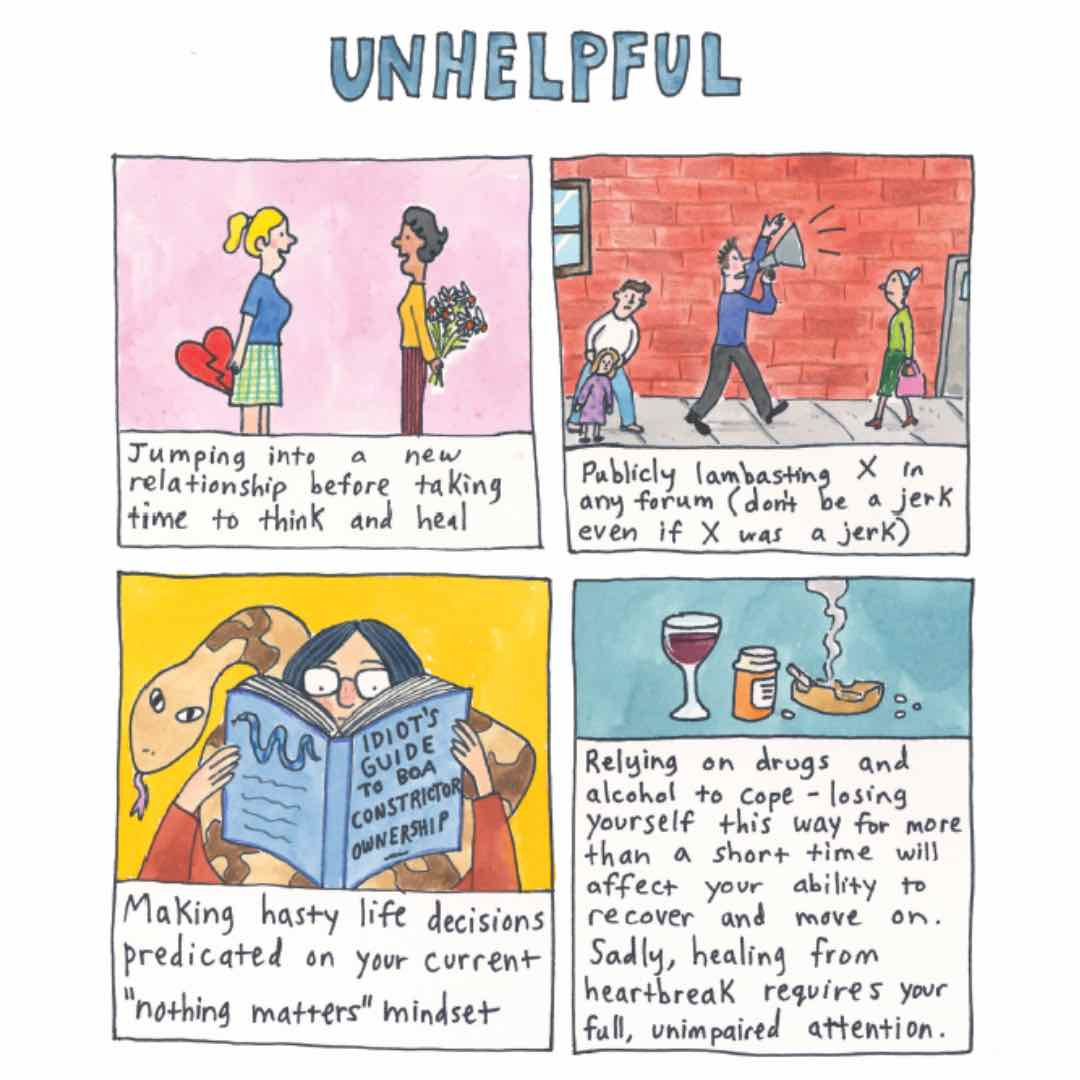

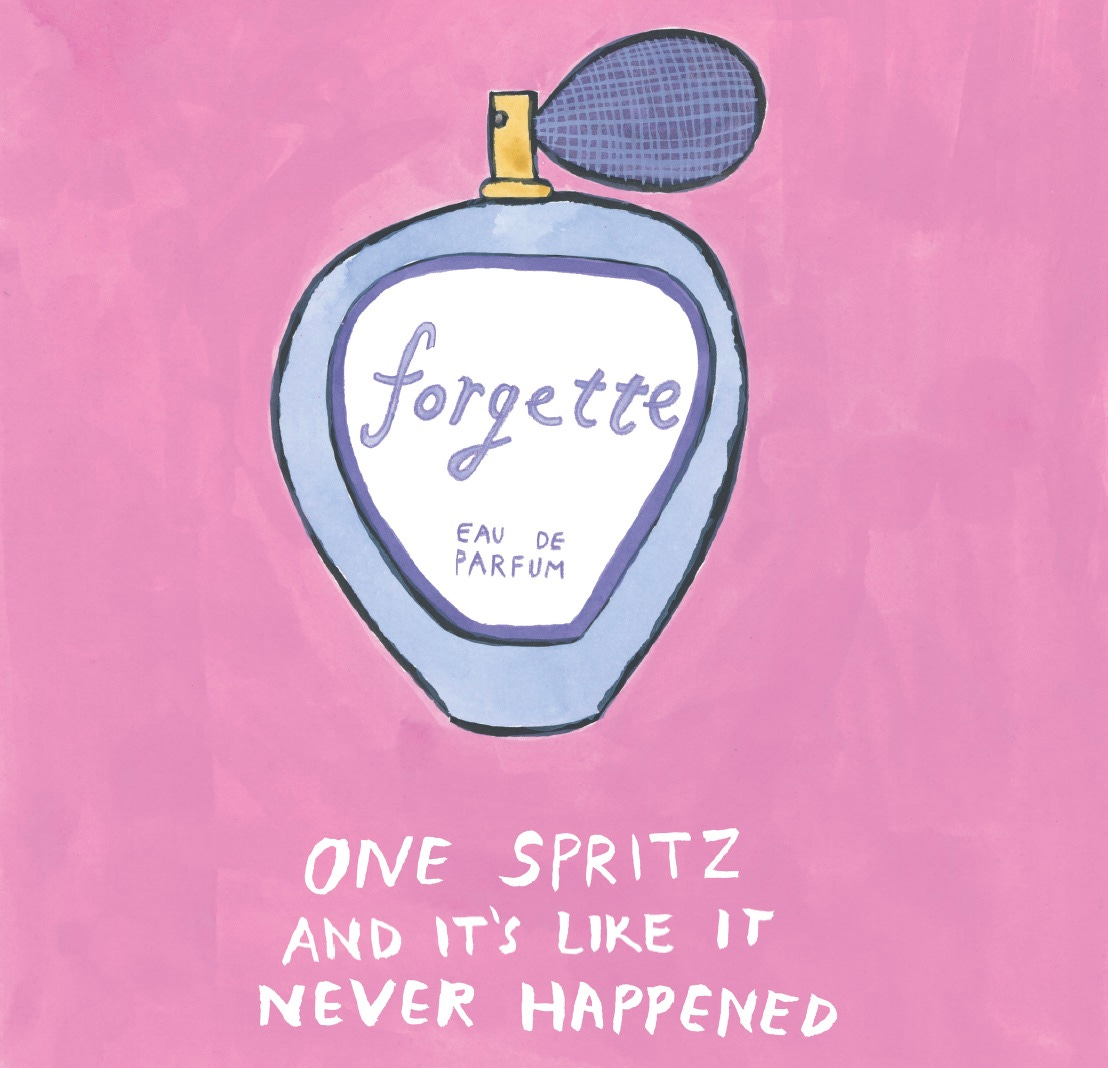
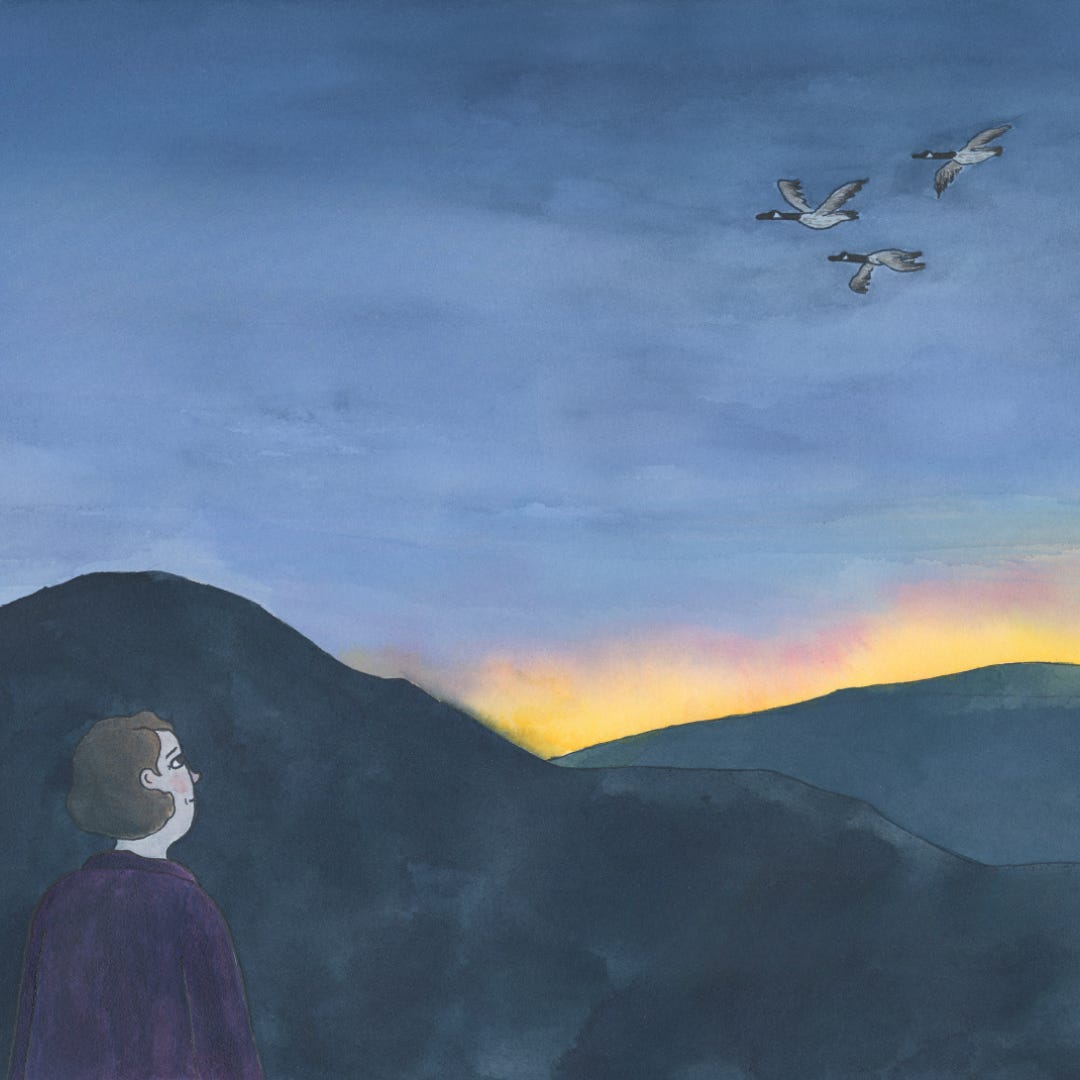


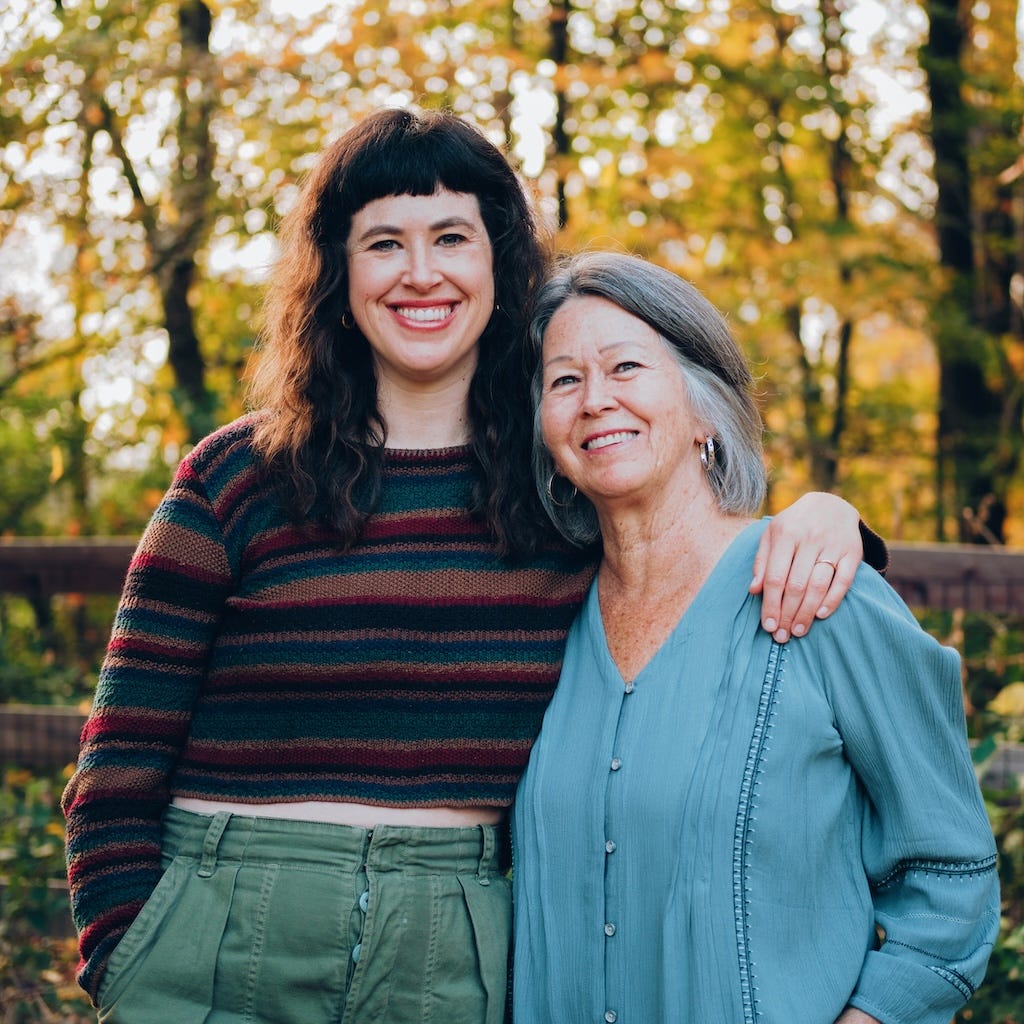


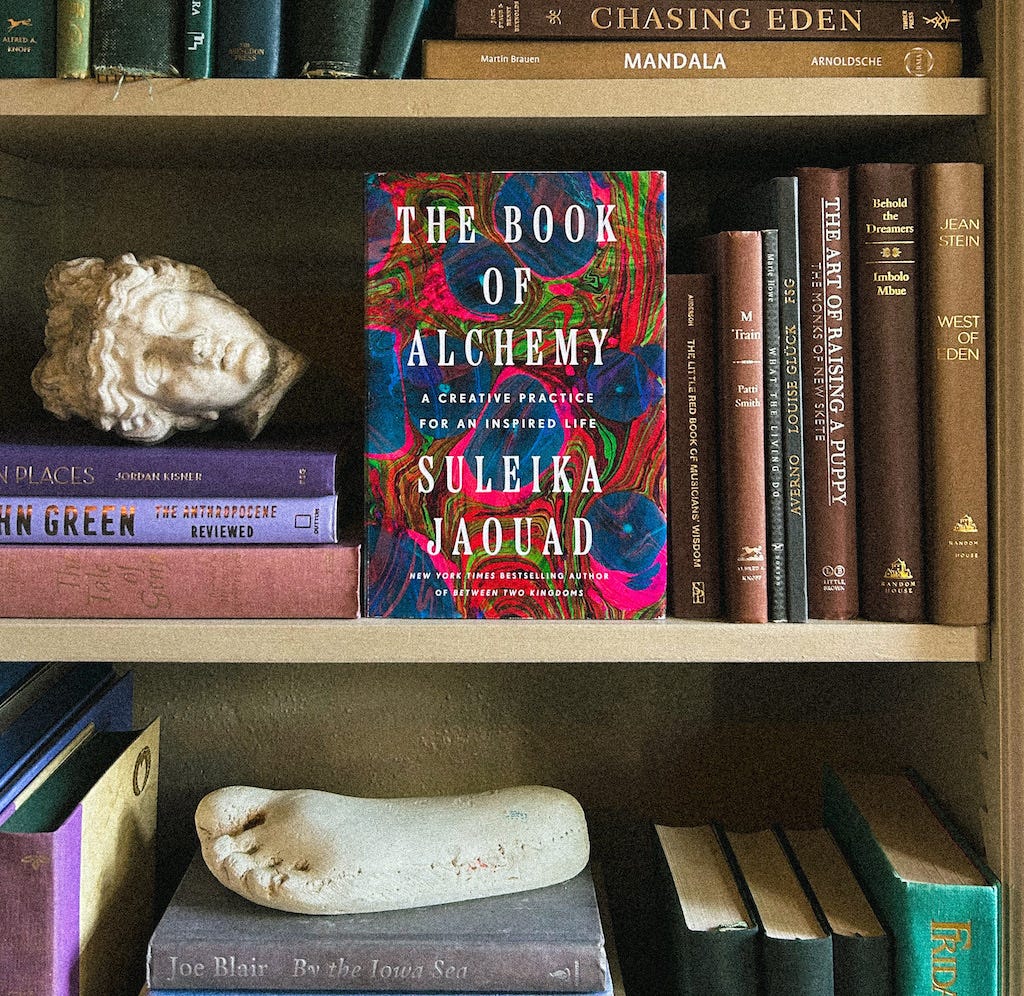
I don't know how to say this in the way I wish to say it (struggling in the dark morning here, rain sliding down my windows), but, perhaps, this: your writing is as nuanced, complex, and layered as your story is, your discoveries, your wisdoms. It's as if you have pushed back against the ordinary constraints of vocabulary and grammar and found more within the well of language itself.
Much love to you, Suleika. Your February is my September.
There are certain griefs that arrive not as tidal waves, but as the quiet exhale of a long-held breath. When my father died, I did not collapse beneath the weight of it—I felt something loosen, uncoil. Relief is an ugly word in the face of death, but it is an honest one. The storm had ended, & with it, the strange obligation to pretend I had ever truly been at home in its eye.
I did not belong to the family I was born into. Not in the way a child should—not with the certainty of safe harbour, not with the quiet knowing that love, real love, would hold. Our house was a place of sharp edges, of tempers that flared like struck matches, of love wielded as both currency & consequence. We learned to live under its weight, to breathe in its silences. To survive was to shrink, to make oneself small enough to slip between the cracks unnoticed. & so I did. For years.
But survival is not living & family is not something you should have to endure.
I mourned, but not in the way one mourns a great loss. I mourned the idea of them, the versions I had tried to shape in my mind—gentler, kinder, capable of softness. I mourned the childhood that never was, the warmth that never came. I mourned the sisters who might have been companions, the nieces who might have known me as more than a ghost in the margins.
But love, I have learned, is not owed simply because of blood & grief does not always mean regret.
The turning point was not a single moment but an accumulation of many—waking up & realising the absence of them no longer felt like a wound. Knowing that peace, real peace, is built in the absence of those who disturb it. Standing in my own life, in my own skin, untethered from their expectations, their judgments, their histories.
And yes, some absences linger. Some ghosts do not leave. Some wounds heal but still ache when pressed. This is not a clean break. It never was.
It is simply the choice I made & the choice I continue to make.